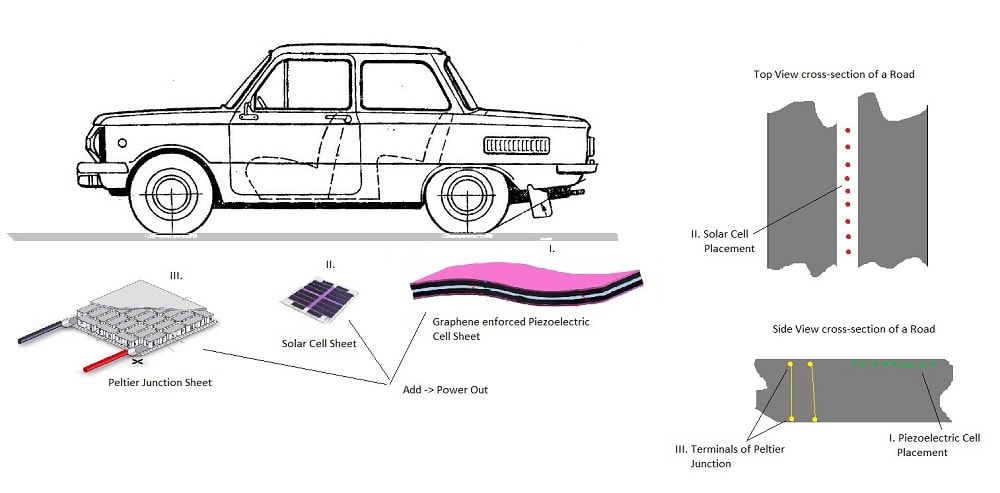With the amount of vehicles that ply on the roads every day, and with plenty of unused energy dissipated in no useful work, the proposed system would change the way the roads are used and built.
This technology would utilize the roads as power generation stations, by employing cheap sheets of piezoelectric transducers, solar cells and Peltier junctions to convert the energy into usable forms to power up traffic lights, charge up electric vehicles, power up road lights, etc.
- The pressure transducers produce energy when a vehicle passes over it. This energy production is enormous if we account for the distance an average vehicle travels plus the sheer number of vehicles on the roads.
- The solar cells are embedded in the lane dividers as sheets to collect power.
- The Peltier junctions utilize the power generated between the layer of roads when they heat up during summers or cool down in the winters.
This technology can be implemented in a very cheap way, in that these modules may be added to the mixture when the roads are built. The process needs to be re-designed with minor modifications, but the implications of the implementations is positively huge.
The motivation for this technology is that I think that vehicles (especially on roads) only consume and deplete the resources of the nature. This technology provides some respite from the trend by generating some power while using the resources. This provides some cushioning against the ever growing demand for energy to ply on roads.
Like this entry?
-
About the Entrant
- Name:Aseem Singh
- Type of entry:individual
- Patent status:none

